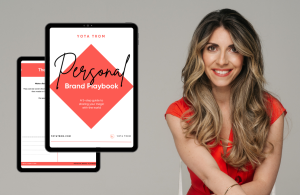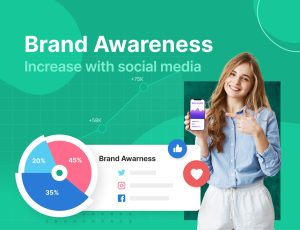Introduction A personal brand is more than just a fancy online profile. It is your identity, reputation, and the way people perceive you in both personal and professional settings. Whether you are an entrepreneur, freelancer, or corporate professional, a strong personal brand can open doors to opportunities, collaborations, and career growth. Building a memorable personal
Introduction
A personal brand is more than just a fancy online profile. It is your identity, reputation, and the way people perceive you in both personal and professional settings. Whether you are an entrepreneur, freelancer, or corporate professional, a strong personal brand can open doors to opportunities, collaborations, and career growth.
Building a memorable personal brand requires authenticity, consistency, and strategy. This guide will walk you through the essential steps to crafting a compelling personal brand that stands out and resonates with your audience.
What is a Personal Brand?

Image by: Yandex.com
Your personal brand is how you present yourself to the world. It includes your skills, values, passions, and expertise. Unlike a corporate brand, which represents a company, a personal brand reflects who you are as an individual.
A strong personal brand helps you:
- Establish credibility in your industry.
- Build meaningful connections.
- Stand out from the competition.
- Increase career opportunities.
Whether you’re an influencer, consultant, entrepreneur, or job seeker, developing your personal brand can help you position yourself as an expert and attract the right audience.
Rise of Personal Branding
In recent years, personal branding has become very popular. With social media and the internet, people can easily share their skills and stories. More individuals realize that how they present themselves online matters for their careers and personal lives. This shift has made personal branding a key part of professional success.
Benefits of Personal Branding
Building a personal brand has many benefits. It helps you stand out in a crowded job market, making you more attractive to employers. A strong personal brand can lead to better job opportunities and promotions. Additionally, it allows you to connect with others in your field, which can open doors for networking and collaboration.
Role of Personal Branding
Personal branding plays an important role in today’s professional world. It helps people show their unique qualities and skills. A clear personal brand can create trust and recognition, allowing you to build relationships with clients and colleagues. Overall, personal branding is a way to communicate who you are and what you stand for.
Importance of Authenticity
Authenticity is key to personal branding. When you are true to yourself, people can see it and appreciate it. Being genuine helps you connect with others on a deeper level. If you pretend to be someone you’re not, people will notice, and it can hurt your brand. Being real builds trust and makes people want to engage with you.
Strategies for Building a Strong Brand
To build a strong personal brand, start by knowing your audience. Understand who you want to reach and what they value. Create content that speaks to them, whether it’s articles, videos, or social media posts. Consistency is also important. Use the same name, colors, and tone across all platforms to create a recognizable brand.
Importance of Continuous Learning
In today’s fast-changing world, continuous learning is essential for personal branding. Keeping your skills up to date shows that you are committed to growth. Take online courses, attend workshops, or read books related to your field. By learning new things, you can add more value to your brand and stay competitive.
How to Build a Personal Brand That Shines

Image by: Yandex.com
1. Define Your Unique Value Proposition
Your unique value proposition (UVP) is what makes you different from others in your industry. It is the combination of your skills, experiences, and personality that sets you apart.
To define your UVP, ask yourself:
- What are my strengths and expertise?
- What problems can I solve for my audience?
- How do I want to be remembered?
Once you identify your UVP, incorporate it into your branding efforts, including your social media, website, and content.
2. Create a Consistent Online Presence
Your online presence plays a crucial role in shaping your personal brand. Social media, personal websites, and blogs allow you to showcase your expertise and connect with your audience.
- Choose the right platforms – Focus on social networks where your audience is active (LinkedIn, Twitter, Instagram, YouTube).
- Optimize your profiles – Use a professional photo, write an engaging bio, and include relevant links to your website or portfolio.
- Stay active – Consistently share valuable content, engage with your audience, and participate in industry discussions.
A well-crafted online presence helps people recognize you as a thought leader in your field.
3. Develop a Content Strategy
Creating valuable content is one of the best ways to build credibility and position yourself as an authority in your niche.
Content ideas to strengthen your personal brand:
- Blog posts and articles: Share industry insights, personal experiences, and expert tips.
- Videos and podcasts: Engage with your audience through educational and entertaining content.
- Social media posts: Share quick tips, success stories, and motivational content.
- Case studies and testimonials: Showcase your achievements and client feedback.
Consistency is key. A strong content strategy helps you stay visible and relevant in your industry.
4. Build and Nurture Your Network
A strong personal brand is not built alone. Networking helps you gain exposure, collaborate, and learn from others in your industry.
- Attend industry events, workshops, and conferences to meet like-minded professionals.
- Engage with people on social media by commenting on posts, sharing insights, and supporting others.
- Join online communities and forums to discuss industry trends and exchange knowledge.
- Offer value first Help others, provide solutions, and share your expertise without expecting immediate returns.
Building relationships with influencers, mentors, and industry leaders can significantly impact your brand growth.
5. Showcase Your Expertise Through Personal Branding Assets
Your personal branding assets include all the tools and materials that represent your brand. These assets help you create a memorable impression and establish authority.
Essential personal branding assets:
- Personal website: A portfolio that highlights your work, achievements, and services.
- Business cards: A professional way to share your contact information.
- Professional headshots: High-quality images that reflect your personal brand.
- Logo and color scheme: If applicable, use branding elements that make you stand out.
A strong brand identity helps you gain trust and credibility in your industry.
6. Be Authentic and Stay True to Yourself
Authenticity is the foundation of a strong personal brand. People connect with real, relatable, and genuine personalities.
- Be transparent: Share your successes, challenges, and experiences.
- Stay true to your values: Align your branding with your beliefs and principles.
- Engage with honesty: Build trust by being open and authentic in your interactions.
An authentic brand resonates with people and creates lasting relationships.
7. Monitor and Evolve Your Brand
A personal brand is not static. As you grow, your brand should evolve too. Regularly review and adjust your branding strategies based on feedback, trends, and personal growth.
- Google yourself to see how your brand appears online.
- Monitor audience engagement on social media and content platforms.
- Seek feedback from mentors, colleagues, and followers.
- Stay updated with industry trends to remain relevant.
A strong personal brand is always evolving to reflect your expertise, values, and goals.
The Ongoing Journey of Personal Branding
Building a personal brand is not a one-time task; it’s an ongoing journey. As you grow and change, so should your brand. Regularly evaluate your brand identity and make adjustments as needed. Stay updated on trends and new tools that can help you present yourself better. By continually refining your brand, you can stay relevant and successful in your field.
Future of Personal Branding

Image by: Yandex.com
The future of personal branding looks bright. As technology continues to evolve, new platforms and tools will emerge to help people showcase their brands. Personal branding will likely become even more important as the job market changes. By adapting to these changes and staying true to themselves, individuals can build strong personal brands that thrive in the future.
Analysis Table: Personal Branding Checklist
| Branding Step | Action Items |
|---|---|
| Define Your Unique Value Proposition | Identify strengths, passions, and what makes you different. |
| Establish an Online Presence | Optimize social media profiles, create a personal website. |
| Create a Content Strategy | Publish blogs, videos, and posts regularly. |
| Build a Strong Network | Attend industry events, engage with professionals. |
| Showcase Expertise | Develop branding assets like websites, business cards. |
| Stay Authentic | Align branding with values and experiences. |
| Monitor and Adapt | Track progress, get feedback, and evolve your brand. |
Conclusion
Building a strong personal brand takes time, effort, and consistency. By defining your unique value proposition, maintaining a strong online presence, creating valuable content, and networking strategically, you can create a brand that resonates with your audience and opens new opportunities.
Start today by taking small steps toward crafting a personal brand that truly represents who you are and what you offer to the world.
Call to Action
Are you ready to build your personal brand? Begin by defining your st




















